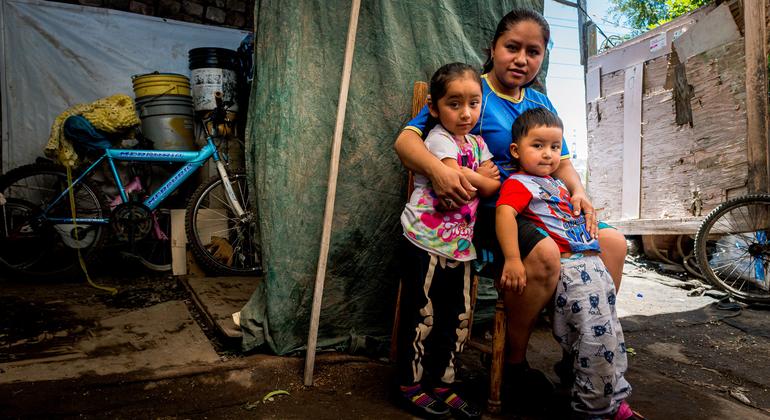Sure! Here’s the translation to American English:
—
In the current context, over 12.5 billion hours of “barely visible” work, primarily performed by women, do not receive adequate recognition. This work, which includes childcare, care for sick family members, and support for the elderly, is carried out by grandmothers, mothers, and daughters who often give up well-paying formal jobs to dedicate themselves to these vital caregiving tasks.
Meredith Cortés Bravo, founder of a grassroots organization in Chile, points out that the labor system is structured in such a way that it ignores these tasks, leading many women to the difficult decision of choosing between raising their children and maintaining employment. However, in Latin America, a “care revolution” is taking shape that demands recognition, protection, and funding for these essential activities by governments and employers.
María Noel Vaeza, Regional Director of UN Women for Latin America and the Caribbean, emphasizes that caregiving is fundamental for every family and community, highlighting that the purpose of this revolution is to make visible, value, and invest in these practices. Although only 18% of the Sustainable Development Goals are focused on 2030, gender equality remains the most lagging due to discriminatory laws and gender norms that remain entrenched in society.
The COVID-19 pandemic revealed a caregiving crisis in the region, leading to widespread recognition of the importance of these tasks, which sustain the economy but are often invisible and underfunded. In response, several nations in the region are reconfiguring their caregiving economies, centering these issues in their public policies. Chile, for example, has introduced one of the most ambitious care systems, offering services in 151 municipalities and planning to reach 75,000 people in the coming years.
Similarly, Mexico and Peru have opted for human rights-based approaches, recognizing caregiving as an essential right. Aideé Zamorano González, representative of the organization Mamá Godin in Mexico, underscores the importance of employers adopting policies that help workers balance their job and caregiving responsibilities.
The recognition and funding of these tasks not only benefit those who perform them but are also crucial for the economic growth of societies. According to UN Women, caregiving systems in countries like Chile and Colombia have shown a significant impact on their national GDPs.
Vaeza concludes that progress in Latin America could serve as a model for other parts of the world. This revolution not only represents a matter of social justice but also a strategic investment in gender equality and sustainable development. As this transformation occurs, the economic empowerment of women becomes an essential means to protect their rights and ensure their autonomy.
Referrer: MiMub in Spanish
